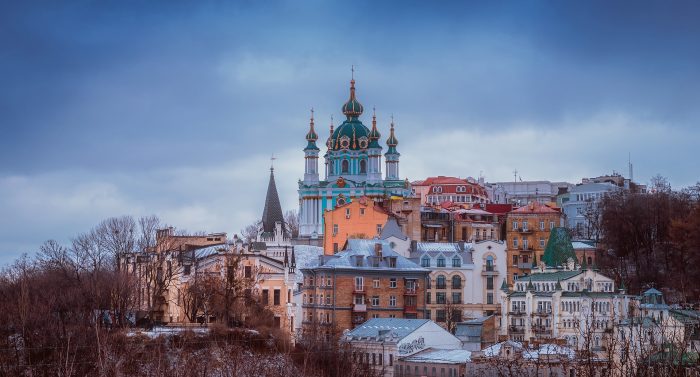Between You and Me: On a Moscow game board, 4679 miles away, soldiers line up against dollar signs
By Leah S. Dunaief

The idea was that if European nations were interdependent for their economic welfare, then they would not make war on each other, but would rather work together for their greater good. And for more than 70 years, the concept held. Where wars were the way for nations, and before there were nations, for regions to enrich themselves by raiding their neighbors, stealing their treasures and claiming their land, now that was eschewed. Finally, there was to be peace.
England and France, France and Germany, Spain and England among others, all put their guns and their history away and did business with each other. This was the vision articulated by the United Nations after World War II ended, and it came to pass. The economists and philosophers were right. No one would make war on neighbors who were making them money. And for the most part, nations realized unprecedented wealth and the security that peace brings. Economics was to be the field of battle, not the military. And with unrestricted trade, globalization took hold. War was a distant memory.
Until now. Incredible as it seemed to the rest of the world, Russia invaded the Ukraine less than two weeks ago with the aim of annexing that country. Such action, as Russian military surrounded Ukraine on three sides, would be an ill-conceived throwback to a more appalling and unwise time. Or so we thought.
As the Ukrainians defiantly rise to meet the invaders with military weapons, the rest of Europe and countries elsewhere in the world are responding with their weapon of choice: economics. It is a testament to the thinking and planning of those leaders seven decades ago. And so, with remarkable unity, the European Union is striving to blow up Russia’s economy rather than blowing up Russia’s cities. The pain for the Russian leaders and the Russian people is to be felt in their pocketbooks and not in their cemeteries. At least, that is the intent.
But of course, as in every war, it’s the civilians who most suffer and pay the price for their leaders’ actions. If they aren’t shot to death, they may be starved to death, as their money becomes worthless and their businesses are ruined. Still, the Russians will do better without Coca-Cola than the Ukrainians without water.
And that is another remarkable consequence of attempts to isolate Russia. Not only are governments withdrawing trade and financial dealings in this siege, but also international corporations are cutting ties with the invading country, even if the companies bear the price. McDonald’s, which employs some 62,000 workers in Russia, Starbucks and Apple have closed their stores, among numerous others. Americans have indicated overwhelmingly in a recent Quinnipiac University national poll (71%), that they will tolerate the increased price of gasoline if Russian imports of oil and gas are ended. The Biden administration has heard them and is closing off those imports. Of course, the prices at the pump were going up anyway due to considerable current inflation. Why not put the blame on the Russians!
So do shared economic interests prevent wars?
There should have been a corollary put into that concept: assuming all the governments are made up of reasonable persons. Much now is being made of President Vladimir Putin’s mental state because most of the rest of the world cannot understand why he is embracing this “special military operation.”
He did not even tell his lower rank soldiers that they were about to engage in a war. Who knows how the Russian leader thinks? Is he unreasonable or is this merely the opening salvo he, and perhaps his “friend,” Premier Xi Jinping of China, are plotting for a long game?
Of one thing the world can be certain. When autocrats are planning something that surely would be roundly condemned, one of the actions they take is to close down the media and crack down on free speech. Signing a new censorship law, Putin has now criminalized independent journalism for reporting “fake news.”







